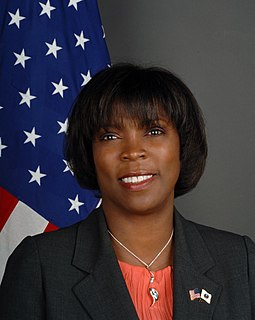A Quote by Raoul Peck
Even in Haiti, I saw John Wayne movies. American cinema has always been the dominant cinema throughout the world, and people tend to forget that. People aren't just seeing these films in California or Florida. They're seeing them in Haiti, in Congo, in France, in Italy and in Asia. That is the power of Hollywood.
Related Quotes
There is this split between the Haiti of before the earthquake and the Haiti of after the earthquake. So when I'm writing anything set in Haiti now, whether fiction or nonfiction, always in the back of my mind is how people, including some of my own family members, have been affected not just by history and by the present but also by the earthquake.
Hollywood is no longer the top. I love going to the cinema. I've always adored the idea of being in great, epic films. But they just don't really exist anymore. It's a real shame. There's great auteurs that create small movies, but it's really hard for anyone to see them, and for them to make any sort of money, or for them even to be made in the first place.



































